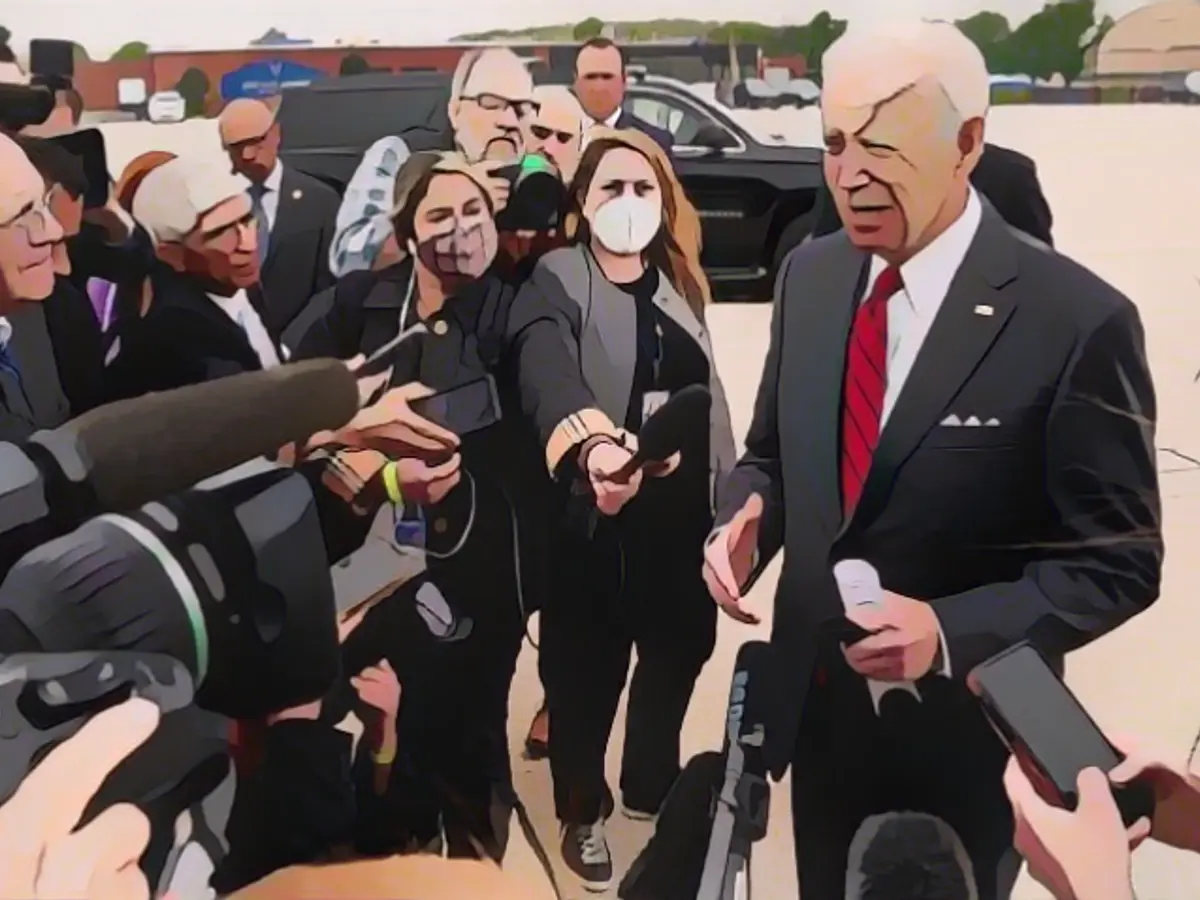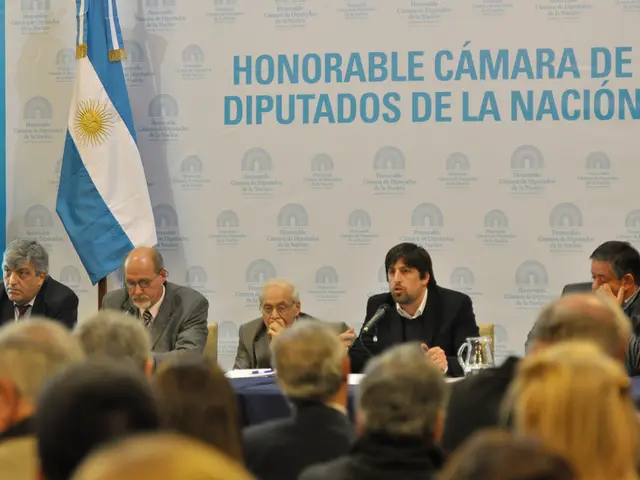The Roe v. Wade Reversal: A Troubling Sign of Broken Politics
By Sarah Thompson
Why does it seem like the United States is going against the flow of the rest of the world? Which other freedoms could be compromised?
The controversial news that the Supreme Court seems poised to overturn the decades-old Roe vs. Wade decision, legalizing abortion, has left people around the world with the impression that the longstanding bastion of personal freedoms, the United States, is turning into an increasingly conservative nation.
But this is a misleading conclusion. The engine of this change is not a growing conservatism, but a dysfunctional political system.
In the last several decades, dozens of countries have changed their abortion laws, making it easier to obtain one in nearly all of them. In most developed nations, abortion remains not only legal but also relatively uncontroversial.
According to polls, the American people want to preserve the freedoms guaranteed by Roe vs. Wade. The decision to overturn it is a significant departure from public opinion, which has consistently supported it, with a clear majority stating so in survey after survey. However, leaked court documents suggest that the Supreme Court may indeed be considering reversing this long-standing precedent.
The question then arises: how can a democratic system take away established rights from the people it supposedly represents? The answer is simply that our system is not behaving as we expect it to.
The Supreme Court, composed of judges whose paths to the bench have been questionable, has apparently signaled its intention to take away a right that is guaranteed to an increasing number of people around the world. Five of the nine judges who have expressed support for this move were appointed by presidents who lost the popular vote but won the Electoral College – Donald Trump, George W. Bush (though he won a majority in his second, not his first, term in office), and Ronald Reagan.
If Senator Mitch McConnell had not misled the public and prevented then-President Barack Obama from filling the vacancy left by the death of Justice Antonin Scalia in 2016, the Supreme Court would look very different today. Obama would still have nearly a year left in office, and the court would likely have a liberal majority, preserving the right to abortion.
But without McConnell's underhanded tactics, the court today might have a liberal majority, and the right to abortion might not be under threat.
Now, it appears that despite the public's support for reproductive freedoms and the guarantee of religious freedom in the First Amendment, the "fundamentalist Christian belief that life begins at conception" could influence the country's laws.
The American democracy is in a dire state. Activists from both parties are exploiting the political system and promoting extreme ideas that do not reflect the will of the people. The most concerning discrepancy is between the government and the Supreme Court.
As philosopher Georg Wilhelm Friedrich Hegel believed, the history of humanity is the progress of free consciousness. The pursuit of freedom is the driving force behind human evolution. However, in America, it appears that the arc of history is bending in the opposite direction, and faster than many think.
If Roe v. Wade were overturned in its draft form, as suggested by Justice Samuel Alito, it would undoubtedly set a dangerous precedent. Alito explicitly referred to another decision that significantly changed the lives of millions of Americans – Obergefell v. Hodges, which legalized same-sex marriage, and Lawrence v. Texas, which decriminalized same-sex relationships. While Alito argued that abortion rights are distinct from these other decisions, his argument could potentially be used to challenge other rights as well, even those not as deeply enshrined in law as Roe's decision.
This is a clear warning that the Supreme Court and fundamentalist Christian political movements could soon turn their attention to challenging LGBTQ+ rights. Politicians have already begun laying the groundwork for this, playing politics with lives and rights, regardless of the devastating consequences. While LGBTQ+ rights are currently under threat, they enjoy widespread support. The support for same-sex marriage has been steadily increasing since surveys began, and is now at around 70%. Nearly four out of five Americans support the idea of legalizing same-sex relationships between consenting adults.
However, even this level of support cannot ensure the permanence of these rights.
Sign up for our free weekly newsletter.
Subscribe to CNN Opinion's new newsletter.
Follow us on Twitter and Facebook
Despite the polls indicating that a majority of Americans support the rights protected by Roe v. Wade, it seems that the Supreme Court, consisting of judges with questionable histories, is preparing to overturn this landmark decision as suggested by leaked court documents. If this were to happen, it could set a dangerous precedent for challenging other established rights.
It's important to note that many developed countries still allow abortions and do not consider it a highly contentious issue. The potential reversal of Roe v. Wade would represent a significant shift in American policy, as public opinion on the matter has remained relatively consistent over the years. This controversy highlights the dysfunction of the American political system and its inability to accurately represent the will of the people, as demonstrated by the confirmation of judges with controversial backgrounds.
Source:
Enrichment Data:
The leaked Supreme Court draft opinion suggests that the court may overturn the landmark Roe v. Wade decision, which legalized abortion in the United States. While the majority of Americans polled support the rights established by Roe v. Wade, the conservative-leaning court has signaled its intention to make a significant shift in policy, threatening established rights.
Reasons Behind the Leak
The leak of the draft opinion likely occurred due to political and ideological motivations. Justice Samuel Alito's draft, which argues against a strongly protected right to abortion, aligns with conservative judicial views and could negatively impact reproductive rights in the United States. The leak also garnered significant public attention and reaction, with celebrations and protests occurring on both sides of the issue.
Implications for Other Established Rights
If Roe v. Wade were to be overturned, it could set a dangerous precedent for challenging other established rights. The decision would undermine the principle of stare decisis, which emphasizes the importance of upholding previous court decisions to maintain judicial consistency. The potential for eroding established rights, particularly those related to personal autonomy and bodily integrity, could have far-reaching consequences for marginalized communities and the broader civil rights landscape.
In summary, the Supreme Court's apparent intention to overturn the Roe v. Wade decision as suggested by a leaked draft would have significant implications for reproductive rights and the broader legal landscape in the United States. It sets a dangerous precedent that could be used to challenge other established rights, threaten the separation of church and state, and restrict access to reproductive healthcare. As America grapples with this potential shift, it is important to maintain judicial consistency, defend civil rights, and ensure that the government accurately represents the will of the people.







